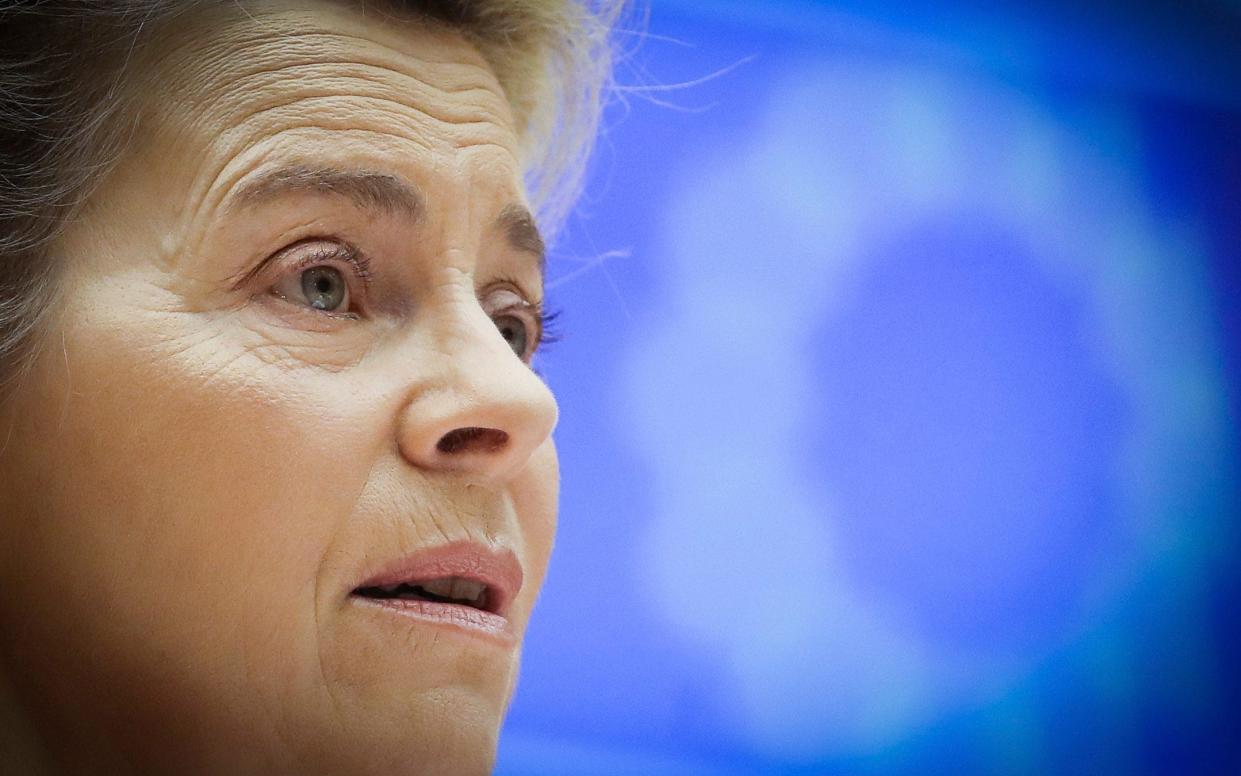European Parliament ratifies Brexit trade deal by huge majority

- Oops!Something went wrong.Please try again later.
- Oops!Something went wrong.Please try again later.
- Oops!Something went wrong.Please try again later.
The European Parliament has ratified the Brexit trade deal by a large majority in what Boris Johnson called the "final step" of years of negotiations over the UK leaving the EU.
"Now is the time to look forward to the future and to building a more Global Britain,” the Prime Minister said.
Mr Johnson said, "This week is the final step in a long journey, providing stability to our new relationship with the EU as vital trading partners, close allies and sovereign equals."
About four months after the deal was struck on Christmas Eve, 660 MEPs backed the zero tariff, zero quota deal on goods. Just five MEPs voted against the historic agreement, while 32 abstained, four years after the Article 50 Brexit process was triggered in March 2017.
MPs in the House of Commons ratified the trade agreement on December 30 by 521 votes to 73.
Lord Frost, the Brexit minister and former UK negotiator, said he "hugely" welcomed the "overwhelming vote" and thanked his counterpart Michel Barnier for "helping get us here".
"Hope we can now begin a new chapter together as Europeans, characterised by friendly cooperation between sovereign equals," he tweeted.
Mr Barnier said MEPs had given the deal a "big green light". "It is the EU and UK’s joint responsibility now to ensure that their respective commitments are respected," he added.
The UK-EU agreement was provisionally applied before the end of 2020 no deal deadline to allow the parliament time to scrutinise it before giving it their approval. It will now formally enter into force on April 30.
The agreement replaces the closer trading relationship the UK had with the EU as a member state. Had MEPs rejected it in, the UK and EU could have been forced to trade on far less lucrative no deal WTO terms.
MEPs voted on the trade deal and a resolution on it on Tuesday but the results were only announced on Wednesday.
Ursula von der Leyen, the European Commission president, told MEPs on Tuesday that the deal had “real teeth” and she would not hesitate to use its enforcement mechanisms to ensure the UK implemented the trade and withdrawal agreements.
Britain angered Brussels by unilaterally extending grace periods in the Protocol and the European Commission has begun legal action against the UK.
She promised MEPs they would be involved in the monitoring of the implementation of the trade deal and that level playing field guarantees, agreed after torturous negotiations with London, would be respected.
After the result was announced, she said the deal "marks the foundation of a strong and close partnership with the UK. Faithful implementation is essential."
Christophe Hansen, a senior MEP on the parliament's trade committee, said, "Ratification of the agreement is not a vote of blind confidence in the UK Government’s intention to implement our agreements in good faith. Rather, it is an EU insurance policy against further unilateral deviations from what was jointly agreed."
MEPs also passed on a non-binding resolution on the trade agreement by 578 votes to 51 against and 68 abstentions. It branded Brexit a “historic mistake”.
“It is a logical consequence of the UK’s withdrawal from the EU and in particular the ending of freedom of movement, that the opportunities for the UK’s largely service-based economy are vastly reduced,” the resolution said.
The resolution urged the commission to pursue legal action against the UK over alleged branches of the Northern Ireland Protocol “with vigour”.
It also accused Britain of “depriving young people of such a unique opportunity” by refusing to continue participating in the Erasmus student exchange programme.
Pierre Gattaz, president of the BusinessEurope trade association said, "The UK is the third biggest trading partner of the EU, which makes this deal one of the most important trade agreements the EU has ever finalised.
"The positive vote of the European Parliament removes a major element of uncertainty, while companies on both sides are still adjusting to the new reality of trading while struggling with the COVID-19 challenges."

